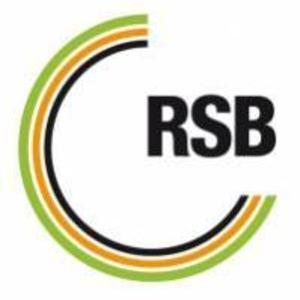RSB revises principles and criteria




November 14, 2016
BY Roundtable on Sustainable Biomaterials
The Roundtable on Sustainable Biomaterials celebrated the announcement at its annual assembly of delegates meeting in Hanoi, Vietnam, that its global members have voted to approve and publish revised principles and criteria. This independent, multi-stakeholder collective works to promote the sustainability of biomaterials and its user-friendly certification scheme is the most trusted of its kind because it verifies that biomaterials are ethical, sustainable and credibly-sourced.
The revised principles and criteria will provide users with streamlined and easier to follow requirements; the amendments will offer:
- A new user-friendly format, enabling easy understanding of how to apply the standard
- Streamlined and clear impact assessment requirements
- Integration of the greenhouse gas (GHG) calculation requirement with other available measurement tools
Advertisement
- A new approach to measure GHG emissions from forestry operations
- A new requirement that provides a grievance mechanism for workers and local communities
- Addition of an integrated pest management requirement.
The RSB standard is based on 12 principles and criteria that comprehensively address universal sustainability issues. Partners implementing the RSB Standard demonstrate their genuine commitment to the future of ethical, sustainable and credibly-sourced biomaterials, because the standard ensures sustainability systems can address challenges including climate change, social, agricultural and economic development.
A unique feature of the RSB Standard is a combined management and risk-based approach with a tool-kit and guidance for operators that helps them reduce risks in operations and supply chains. This approach also helps lower the burden for implementation, focusing on the issues that matter most, whilst ensuring continuous improvement.
Advertisement
Download RSB's standards guide for more details on the standard and download RSB's principles and criteria brochure which gives detail on each of the 12 principles and criteria.
The RSB Standard is the strongest and most trusted of its kind, enjoying recognition from World Wildlife Fund, International Union for Conservation of Nature and Natural Resources Defense Council, amongst others. It is widely recognized by regulatory authorities in Europe, the U.S. and elsewhere, allowing RSB-certified products swift approval and preferential market access.
The publishing of the revised principles and criteria is the culmination of an extensive consultative process and unanimous agreement from the multi-stakeholder RSB membership on the improvements and additions.
Related Stories
The U.S. Department of Energy Bioenergy Technologies Office (BETO) announced up to $23 million in funding to support research and development (R&D) of domestic chemicals and fuels from biomass and waste resources.
The U.S. DOE has announced its intent to issue funding to support high-impact research and development (R&D) projects in two priority areas: sustainable propane and renewable chemicals and algal system cultivation and preprocessing.
Sens. Sherrod Brown, D-Ohio, and Pete Ricketts, R-Neb., in August introduced the Renewable Chemicals Act, a bill that aims to create a tax credit to support the production of biobased chemicals.
The Chemical Catalysis for Bioenergy Consortium, a consortium of the U.S. DOE’s Bioenergy Technologies Office, has launched an effort that aims to gather community input on the development of new biomass processing facilities.
USDA on March 8 celebrated the second annual National Biobased Products Day, a celebration to raise public awareness of biobased products, their benefits and their contributions to the U.S. economy and rural communities.
Upcoming Events










